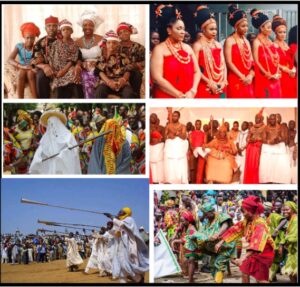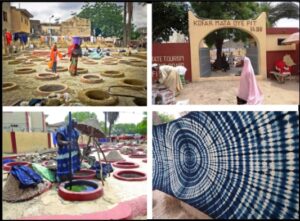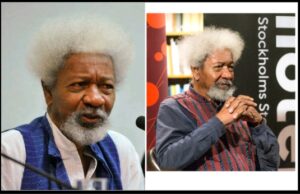With approximately 213 million citizens, Nigeria is the most populous country in Africa and the ninth most populous country in the world. Its flag represents natural abundance and peace and is made up of three vertical bars of green, white, and green. When people hear the name Nigeria, they typically picture a large city crowded with people and noisy. These initial impressions do not do justice to the beauty of this nation or the fortitude of its people. Ten fascinating facts about Nigeria have been gathered by us to help you understand this nation better. Hopefully, this will pique your curiosity to learn more and maybe even travel to lovely Nigeria to witness firsthand all it has to offer the globe.
- The official language of Nigeria is English. But Hausa, Yoruba, Igbo, Fulfulde, Ibibio, Kanuri, and Tiv, together with Nigerian, Hausa, and Bura sign languages, are extensively used by people in rural regions and with lower levels of education. In addition to these, Nigeria has 500 more indigenous languages, which help to distinguish its many ethnic groups.

- Nigeria, the most varied nation in Africa, is home to over 250 different ethnic groups. This nation has significant ethnic, linguistic, cultural, and religious diversity. The Hausa-Fulani, Yoruba, and Igbo are the three largest of these ethnic groups.

- The largest city in Nigeria, Lagos, which has a population of nearly 14 million, served as its previous capital. Its population is growing as a result of Lagos State and Nigeria’s commercial and financial hub. Lagos was replaced as the capital of Nigeria by Abuja in December 1991.
- Nigeria reached its peak oil profits in the 1970s, making it the richest nation in Africa. The nation produces an average of 2.5 million barrels of crude oil daily and has a passive reserve of natural gas, oil, and petroleum. The Nigerian economy is expanding strongly and is anticipated to be among the top 10 economies in the world by 2050 as a result of these products.
- Only Southern Nigeria is home to the estrildid finch species known as the Anambra waxbill. This 12 centimeter long bird can form flocks of up to 20 birds or more. Only five sightings of this species have been documented in Nigeria, and it is typically seen in long grasses next to water sources including lagoon sandbanks, marshes, swamps, and rivers. Grass seeds from seed heads are what these birds eat.

- The diversity of Nigeria’s ecosystems contributes to the richness of its flora and fauna. In Nigeria, you can look forward to witnessing butterflies among other insects. The number of butterfly species in the country already exceeds 1000, and new species are continuously being found here, so the number will continue to grow.
- The Kofar Mata Dye Pits in Kano, Nigeria, are the oldest and final dye pit in Africa. They were established in 1498. About 270 dye pits were present here during the height of its indigo-dyed cotton fabric production. The centuries-old dyeing method employed at the Kofar Mata dye mine has been handed down from father to son. Precision and perseverance are needed to create the various designs on this indigo fabric. Due to the entry of less expensive foreign fabric onto the Nigerian market, the dyeing of fabric industry is currently in decline. Try purchasing their fabrics when you are in Nigeria to support the preservation of this dying color method.

- Nigerian playwright and political activist Wole Soyinka, also known as Akinwande Oluwole Soyinka, was the first African to win the Novel Prize for Literature in 1986. A Dance of the Forests, The Lion and the Jewel, The Road, King Baabu, The Beatification of Area Boy, A Shuttle in the Crypt, Samarkand and Other Markets I Have Known, and Chronicles from the Land of the Happiest People on Earth are just a few of Wole Soyinka’s works that have earned him international acclaim.

- Nollywood, or the Nigerian film industry, cranks out 200 films per week, or 10,000 films annually. With this level of volume film production, it falls short of Bollywood in India, but larger than the American’s Hollywood. You ought to watch Omo Ghetto: The Saga, The Wedding Party 1 and 2, Chief Daddy, Sugar Rush, King of Boys, Jagun-Jagun, Far from home, Battle on Buka Street amongst others. some of the highest-grossing Nollywood films.
-
In Western countries, Looking someone in the eye is a sign of respect and personal attention or interest. Where as here, it’s polite to avoid direct contact. Keep in mind that looking straight into someone’s eyes is not customary in Nigeria or other African nations. They view it as an aggressive posture, particularly when a younger individual confronts an older or his superior.

HAPPY INDEPENDENCE NIGERIA 🎊🎊

